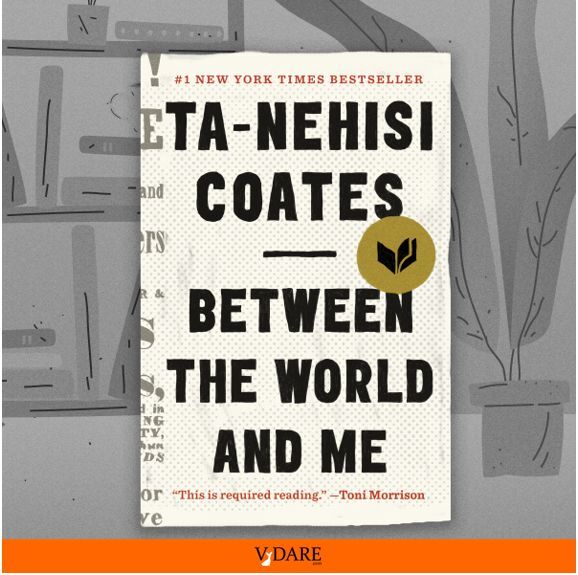• A very male movie. For V-E Day a friend sent me a link to the full-length YouTube showing of Twelve O’Clock High, a 1949 movie about World War 2.
From the storyline at IMDb:
In this story of the early days of daylight bombing raids over Nazi Germany, General Frank Savage (Gregory Peck) must take command of a ”hard luck” bomber group. Much of the story deals with his struggle to whip his group into a disciplined fighting unit in spite of heavy losses, and withering attacks by German fighters over their targets. Actual combat footage is used in this tense war drama.
I don’t know why I got through those 75 years without ever seeing Twelve O’Clock High. If I mention it to friends of my own generation, there’s instant recognition. Late-Silent and early-Boomer American guys have all seen it.
”Guys” is a key word there. This is, I think, the most male movie I’ve ever seen. Watching it, I started to think there were going to be no women in it at all. Then, about an hour and a half along, a nurse shows up for a brief walk-on part. The actress was Joyce Mackenzie, billed in the full cast list as ”uncredited.”
(Heh, a fellow ”uncredited” spirit! But that’s unfair to Ms. Mackenzie, who had a respectable movie and TV career after Twelve O’Clock High; and who, acting talent aside, was way better looking than I am, or was.)
There are no kids in the movie either, nor any Diversity. Ms. Mackenzie excepted, everyone was an adult white male. Most of them smoked cigarettes (although Gregory Peck seems never to have smoked very much of his). Nineteen forty-nine, yeah.
Is it a good movie? I thought so. Both the realities of 1940s aerial warfare and the tormented psychology of combat leadership are very well shown. The airborne scenes, fighter planes vs. bombers, are indeed actual WW2 footage, and Gregory Peck didn’t get five Oscar nominations for nothing (although he only carried off the Best Actor prize for one, not this one).
But… 1949—so long ago, so damn long ago.
• Confessions of a gadget nerd. The Summer Preview 2024 Hammacher Schlemmer catalog got my attention when it arrived in early May. On the cover: ”The Only Seven Person Tricycle.”

Inside I read that:
This is the only tricycle that accommodates seven adults and facilitates close-knit conferencing during joyrides. The seven seats each have a set of pedals that riders can operate simultaneously to propel the tricycle up to 10 mph, encouraging social interaction and team-building while pedaling.
It could be mine for $20,000. (”Shipping and handling rates vary by location.”)
This is the latest way of ”conferencing”? Does Joe Biden consult with the Joint Chiefs of Staff while they all pedal up and down Pennsylvania Avenue on a seven-person trike? That would explain a lot.
The Hammacher Schlemmer catalog also offers more routine wares: The Stress Relieving Full Head Massager, The 7-foot Sprinklesaurus ”inflatable dinosaur that keeps kids cool in summer,” The High Powered Quartz Callus Remover, and many other gadgets, garden decorations, and health aids.
I get all these catalogs, not just Hammacher Schlemmer’s. I get Sporty’s Tool Shop (A decorative fake rock to cover unsightly objects on your lawn), Sharper Image (Personal Virtual Art Museum ”plugs directly into your TV to showcase 500 classic paintings”), Whatever Works (Solar-Powered Turtles, ”When the Sun goes down, LED bulbs light up the shells”), Heartland America (”Ultrasonic toothbrush vibrates 40,000 strokes per minute!”) Preferred Living (a meditating frog statue for your Zen garden), Signals (Poseable Stick Figure Floor Lamp), … I get ’em all.
To have ended up thus on all their mailing lists, I guess I must at some point have purchased something or other from every one of these catalogs. So OK, I have a weakness for gadgets and cute oddities.
Still, a seven-person tricycle? For $20,000? I think the gadget peddlers are testing the limits there.
This $24.95 shoehorn-and-backscratcher combo is kind of nifty, though…
• Fiction of the month. Wa-a-a-y back in 2005 I made a passing mention of Theodore Fontane’s 1895 novel Effi Briest, which I’d read the year before. I wrote:
[E]very literate person is familiar with the great French and Russian novels of anguished, transgressing 19th-century womanhood, Flaubert’s Madame Bovary (1856) and Tolstoy’s Anna Karenina (1877). Very few are acquainted with the German equivalent, Theodore Fontane’s Effi Briest (1895). (There is a Penguin Classics translation by Douglas Parmée.)
Early this month it occurred to me that in the twenty years since Effi Briest I hadn’t read a single German novel. (Although I can still be heard to mutter, when events get the better of me, ”Mein Leben ist verpfuscht.”)
For a self-proclaimed Germanophile, that’s a poor record. It was, I decided, way past time to make some addition to my knowledge of German Lit. So on my next trip to the local library I took out a copy of Thomas Mann’s Buddenbrooks (1901), which got its author the Nobel Prize for Literature in 1929.
It’s a splendid novel, a saga—big and meaty, the way I like ’em. We follow the fortunes of the Buddenbrooks, an upper-middle-class German family, from the 1830s to the 1870s.
I can pick nits, of course. The scenery of the novel is way over-described. People gather in a room to talk; but before we hear any of the talk we get a much too detailed account of the room’s furniture, light fixtures, carpets, windows, wall hangings, and so on.
With the human scenery it’s even worse. When Alois Permaneder makes his first appearance in Part 6, Chapter 4 he comes with a full page of description:
The lower half of his face, cheeks and nose, the back of his head, the nape of his neck—it all merged like a little pile of shapeless pillows…
Uh-huh. I guess there was some excuse for this in pre-movie days; and the commentaries tell us that Mann was working some deep German strategy—something to do with leitmotifs—that I couldn’t be bothered to pursue.
I was reading Buddenbrooks in English translation, of course. My schoolboy German won’t get me through a 700-page novel.
There are two translations on the market, both by Americans: Helen Tracy Lowe-Porter’s (1929) and John Woods’ (1993). The library copy I started with was Lowe-Porter’s, in the Wisehouse Classics 2020 edition. The translation is as good as it needs to be, but the book production is terrible.
 In Part 5, Chapter 4, for example, when Thomas Buddenbrook should be reflecting on the character of his just deceased Uncle Gotthold, the text—two full pages of it—is suddenly replaced by a precise, letter-for-letter copy of two pages of text from Chapter 2 that have nothing to do with Uncle Gotthold. At that point I quit reading my library copy and ordered a different edition from Vintage Books, 1994.
In Part 5, Chapter 4, for example, when Thomas Buddenbrook should be reflecting on the character of his just deceased Uncle Gotthold, the text—two full pages of it—is suddenly replaced by a precise, letter-for-letter copy of two pages of text from Chapter 2 that have nothing to do with Uncle Gotthold. At that point I quit reading my library copy and ordered a different edition from Vintage Books, 1994.
It’s depressing to see such major faults in book production. I know of course that printed books on paper are a dying medium, but as a book-lover I don’t want to be reminded of it. Does Wisehouse Classics no longer employ readers to avoid this kind of gross blunder (and many typos)?
The Vintage Books edition is a much better production, without a single typo that I noticed. It uses John Woods’ translation; so translationwise I’ve covered both bases, having read the first forty percent of Buddenbrooks as rendered by Helen Lowe-Porter and the rest by Woods.
I’ll register a slight preference for Woods’ translation as being a tad more direct.
The one time I went to the German original, for example, was to see what, exactly, was the Deplorable Word that Herr Permaneder hurled at his wife Antonie Buddenbrook in Part 6, Chapter 9—the word that caused her to quit the marriage and file for divorce. The German text is of course at Gutenberg.org:
Gei zum Deifi, Saulud’r dreckats!
Lowe-Porter:
Go to the devil, you filthy sprat-eating slut!
Woods:
Go to hell, you filthy sow, you slut!
(The Buddenbrooks are natives of Lübeck on the Baltic coast; Permaneder is from Munich, deep in land-locked Bavaria, where people regarded the lesser kinds of seafood as disgusting. Mann brings to life the regional peculiarities of 19th-century Germany.)
I am also obliged to John Woods for having taught me an Americanism I’d never encountered before: a secondary meaning of the word ”pony” given in Webster’s Third (1993) as:
pony … … 4 : a literal often inter-linear translation of a foreign language text; esp : one used illegitimately by students in preparing or reciting lessons.
Lowe-Porter uses the British equivalent ”crib.” (The 1971 OED allows Woods’ usage but flags it as ”U.S. slang.”) I had never before encountered this usage of the word ”pony.” Is it still current?
For Buddenbrooks Amazon shows a good selection of movie and TV adaptations. I guess the streaming services have something, too. If anyone can offer a recommendation I’d be glad to hear it.
• Enstupidated software. What the hell happened to X to make it so damned annoying?
- When I click on the bookmark-bar symbol I don’t go direct to X, as I used to. I get a page asking me to log in. So I log in via my Google account, and only then am I in X. What’s the point?
- That login immediately—every time!—generates an incoming email from X declaring that ”We noticed a login to your account … from a new device. Was this you?” It then lists the new login location as ”North Bergen, NJ, USA,” a place I’ve never been to, have no connection with, and don’t know anyone at. It also lists the ”new device”—which is the same browser on the same laptop from the same location that I’ve been using since 2017—as ”ChromeDesktop on Windows.” Every time! The first couple of times I followed the instructions, did a password change etc.; but those fool emails kept coming, so now I don’t bother.
- Pornbot swarms, oy. At month end, however, they seem to have stopped.
- The sudden, unheralded change from black text on white to white text on black. Why? Can I set it back to the old style, which I liked better?
I wouldn’t mind living in a world ruled by software. What I actually live in is a world ruled by crappy software.
Don’t get me started on McAfee … Oh, here comes a McAfee pop-up. YOU’VE REACHED YOUR DATA PROTECTION LIMIT. No worries, though; there’s a button saying ”Upgrade my protection.” I click on it. It brings up a new window. YOU USED ALL YOUR FREE DATA PROTECTION FOR THIS MONTH. Here the button says: ”Try unlimited VPN.” I click on it. Nothing happens.
I get a dozen or so of these pop-ups from McAfee in an average working day. Every one of them takes me, sometimes via intermediate windows, to a dead end like this. I used to pay attention to them; now I just ignore them.
Back in the Nixon administration when I earned my living as a mainframe computer programmer, a misplaced comma in your code could get you an angry 3 a.m. call from the data center. Nowadays buggy code will earn you a billion and retirement at forty to a Caribbean island.
I read about sensational advances in Artificial Intelligence while the everyday apps on my laptop get dumber and dumber.
• An opera you never heard of. European music is one of the greatest glories—perhaps the greatest glory—of our civilization.
Other civilizations acknowledge this. Chinese people (with a few exceptions) cherish a prickly style of racial and cultural pride; yet they send their sons and daughters off to learn piano, violin, and French horn, and crowd into concert halls to hear visiting orchestras and opera singers perform Mozart and Verdi.
For those of us Euros with low musical sensibilities, this creates psychological problems. I have tried for decades to raise myself to some proper appreciation of music, with very limited results. I’ve been ordering and listening to Prof. Greenberg’s lectures since way back when they came on cassette tapes and Great Courses was called The Teaching Company. I attend concerts and recitals as opportunity offers.
Nothing’s helped much. Musically I remain what I began describing myself as forty years ago: a middlebrow opera fan. Instrumental music sends me to sleep.
My failure is likely genetic, as most things are. My (Chinese) wife and I insisted on both kids having music lessons—girl, violin; boy, piano. It didn’t stick. Now, coming into their thirties, neither ever plays.
For some reason I can’t fathom, a high proportion of my friends are seriously musical. They make patient, tactful efforts to raise my understanding. One of them recently gifted me a couple of CDs: Schubert and Schumann, string quartets in both cases.
 I listened to both CDs with careful attention, but without being either shaken or stirred. Schumann was, to my ears, the less accessible. I listened to that CD over again, and used a fragment of the music for my May 31st Radio Derb signoff.
I listened to both CDs with careful attention, but without being either shaken or stirred. Schumann was, to my ears, the less accessible. I listened to that CD over again, and used a fragment of the music for my May 31st Radio Derb signoff.
Prof. Greenberg had acquainted me with both composers but I didn’t recall much—a little of -bert but nothing at all of -mann. So I pulled down my copy of Schonberg’s The Lives of the Great Composers and read the Schumann chapter.
[A] surprisingly large amount of Schumann’s music is no longer played. He is not a composer to everybody’s taste.
Why not?
The unconventionalities aside, what made his music hard to understand fully—the same is true today—is the personal nature of the content. It is almost autobiographical.
Uh … OK. Schonberg left me thoroughly confused. I can see how novel might be autobiographical, but a symphony? A concerto?
Seeking some clarity I consulted Heather Mac Donald, who is a serious music lover (and occasional reviewer). Here is Heather’s opinion, reproduced with her permission:
Schumann’s song repertoire is gorgeous but more unsettling than Schubert’s—more open-ended, disquieting, and unresolved. The songs liberate the piano from subservience to the voice and set it off into unknown realms. The solo piano works are similarly gorgeous and similarly unsettling.
The facile received wisdom [shared by Schonberg—J.D.] that Schumann was insufficient as an orchestrator is ridiculous.
The piano quartet and piano quintet are monuments of the repertoire, unbearable in their passion. The piano concerto is a rushing force.
In short: all great.
Thank you, Heather, but… the heck with it. Knowing when I’m out of my depth but unwilling to give up altogether, I decided to try Schumann’s one and only opera. Schonberg:
Schumann achieved success in all musical forms except one, opera. He spent much time over Genoveva, which achieved no fame in its day and has had very few performances since.
Genoveva premiered in 1850; there’s a good general account of the opera here. I bought a CD set of the 1951 Stuttgart performance with Friederike Sailer in the title role.
Eh, not bad; but with the great bel canto composers still dominating the opera stage and Joe Green coming up fast in the outside lane, it’s not hard to see why Genoveva ”achieved no fame in its day.”
If you want to sample Genoveva, the heroine’s longish (7 minutes) despair’n’resignation aria in Act 4 is about as good as it gets. It’s on YouTube at 1h42m42s here in a concert performance (no scenery or acting), and unfortunately in German without subtitles. I couldn’t find an English translation of the libretto and my CD set doesn’t have one, so I fed the German text through Google Translate and got this. You’re welcome!
Wait a minute: Friederike Sailer? Any relation, Steve?
• Existential issues. Dwindling fertility … marriage later and more troubled … MeToo gold-diggers … the rise of the incels …: Relations between the sexes definitely took a wrong turn somewhere.
We geezers have long been noticing this, even those of us not gifted with Steve’s powers of Noticing.
Story from the Physical Therapy gym (from which I graduated May 23rd).
The first exercise in my schedule was the stationary bike. The therapist, who in this case was a pretty young woman I’ll call Suzy, adjusted seat and pedals to my size. I seated myself, got my feet in the pedals, and waited for Suzy to reach across me and press the START button on the control panel so I could loosen up with ten minutes of steady pedalling.
Suzy did so. ”Let me turn you on,” she said, as she reached across me for the button.
Me: ”Please don’t turn me on, Suzy. I’m a married guy.”
In real life prior to about twenty years ago, and in the TV sitcoms and movie romcoms of that time, a lady in that situation would have giggled or chortled; or she might have snorted contempt, or replied with some merry put-down. (”No prob, I don’t date Civil War veterans …”)
Suzy uttered not a peep. She backed away in silence and left me to other therapists for the rest of the session, with an occasional wary glance at me from across the room. I guess I was lucky to avoid a lawsuit.
Can homo sapiens continue to reproduce itself with sensibilities like this?
• Thanatophobia. I don’t personally spend much time thinking about my death. Hardly any time, really; I mean, what’s the point? Dum vivimus, vivamus.
It was a concatenation of three events in mid-May that turned me in that regrettable direction.
- A May 13th Twitter thread that someone started with the question: ”Does the fear of death lessen with age and experience?” It got my attention because one of the earliest replies was from Charles Murray: ”If you’re doing it right, yes.”
- A neighbor I’ve known for 30-plus years, age mid-70s, was hospitalized with a horrible affliction, and seemed likely not to make it. I’m glad to report at month end that after some heroic surgery he is doing better.
- I had just got to Part 10, Chapter 5 of Buddenbrooks, where Thomas Buddenbrook falls into a long meditation on the subject. At this point he is not a happy man. His son is a disappointment, his wife has been flirting with a handsome young military officer, and he’s been reading—eeek!—Schopenhauer. So: ”What was death? The answer to the question came to him now, but not in poor, pretentious words—instead, he felt it, possessed it somewhere within him …”
To the original Twitter question: the expression ”fear of death” needs some definition of terms. The Angel of Death too often comes presaged by unpleasant things that are to be feared on their own account: pain, indignity, disability, dementia, neglect,… None of those things is death, though. Nor does death inevitably follow them: some can be cured.
So what’s to be afraid of? The actual moment of death? Why should I fear an infinitesimal instant of time?
There is of course the matter of what, if anything follows death. What’s on the other side? There are precisely two possibilities: something, or nothing.
Our religions supply the somethings: a new kind of life in a new world, or reincarnation to same-old same-old in this one. Both, they tell us, can be unpleasant and so to be feared: torment in Hell, or reincarnation as a pack mule. Our priests, pastors, rabbis, mullahs, yogis, and bonzes teach us how to avoid these negative outcomes.
Nothingness also has its pluses and minuses. The big plus—release from earthly troubles—is well promoted in verse. There is Spenser’s ”quiet grave”:
Sleepe after toyle, port after stormie seas,
Ease after warre, death after life does greatly please.
And there is Tennyson’s Tithonus, pleading with his scatterbrained goddess to withdraw her gift of eternal life (to which she had forgotten to add eternal youth): ”Release me, and restore me to the ground…”
The minuses of nothingness are not so well advertised, perhaps not so widely felt. Here is Philip Larkin feeling them at 4 a.m.:
This is a special way of being afraid
No trick dispels. Religion used to try,
That vast moth-eaten musical brocade
Created to pretend we never die,
And specious stuff that says No rational being
Can fear a thing it will not feel, not seeing
That this is what we fear—no sight, no sound,
No touch or taste or smell, nothing to think with,
Nothing to love or link with,
The anaesthetic from which none come round.
If I fear anything about death, it’s those last moments of awareness (if I am cursed with them) when the world slips away. Thomas Gray captured them perfectly:
For who to dumb Forgetfulness a prey,
This pleasing anxious being e’er resigned,
Left the warm precincts of the cheerful day,
Nor cast one longing, lingering look behind?
With all its pains, troubles, and crappy software, this world—the warm precincts of the cheerful day—is not such a bad place. The irremediable sadness of parting from it: that is something I fear.
• Math Corner. This brainteaser is a bit of an old chestnut but worth another airing. I have lifted it from the April 2024 Math Horizons magazine, who tell us that it appeared as problem 2a in the final round of the 2019-2020 Niels Henrik Abel Mathematics Competition in Norway.
Preamble. The word ”number” in what follows means ”positive whole number greater than zero.” Every such number has a factorial, defined as the product of all the numbers less than or equal to itself. The factorial of N, written N! is 1 × 2 × 3 × 4 × 5 × 6 × 7 … × N.
So 1! is just 1; 2! is 1 × 2, which is 2; 3! is 1 × 2 × 3, which is 6; 4! is 1 × 2 × 3 × 4, which is 24; 5! is 1 × 2 × 3 × 4 × 5, which is 120; and so on.
Factorials get big very quickly: 20! is 2,432,902,008,176,640,000; 100! has 158 digits. For big numbers, Stirling’s formula gives a good approximation.
(As defined, 0! has no meaning. It’s convenient in some branches of math, however, to treat 0! as equal to 1, so you may see that. It isn’t relevant here.)
OK, here’s a curious fact: 3! = 1! + 1! + 2! + 2!
If a number N has factorial equal to the sum of N + 1 factorials of lesser numbers, I shall call it factorially additive. (Not to be confused with factorwise compliant, heh.) Since 3! is the sum of four lesser factorials, it is factorially additive.
Brainteaser. What other numbers besides 3 are factorially additive?


 John Derbyshire [
John Derbyshire [








